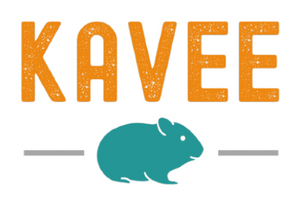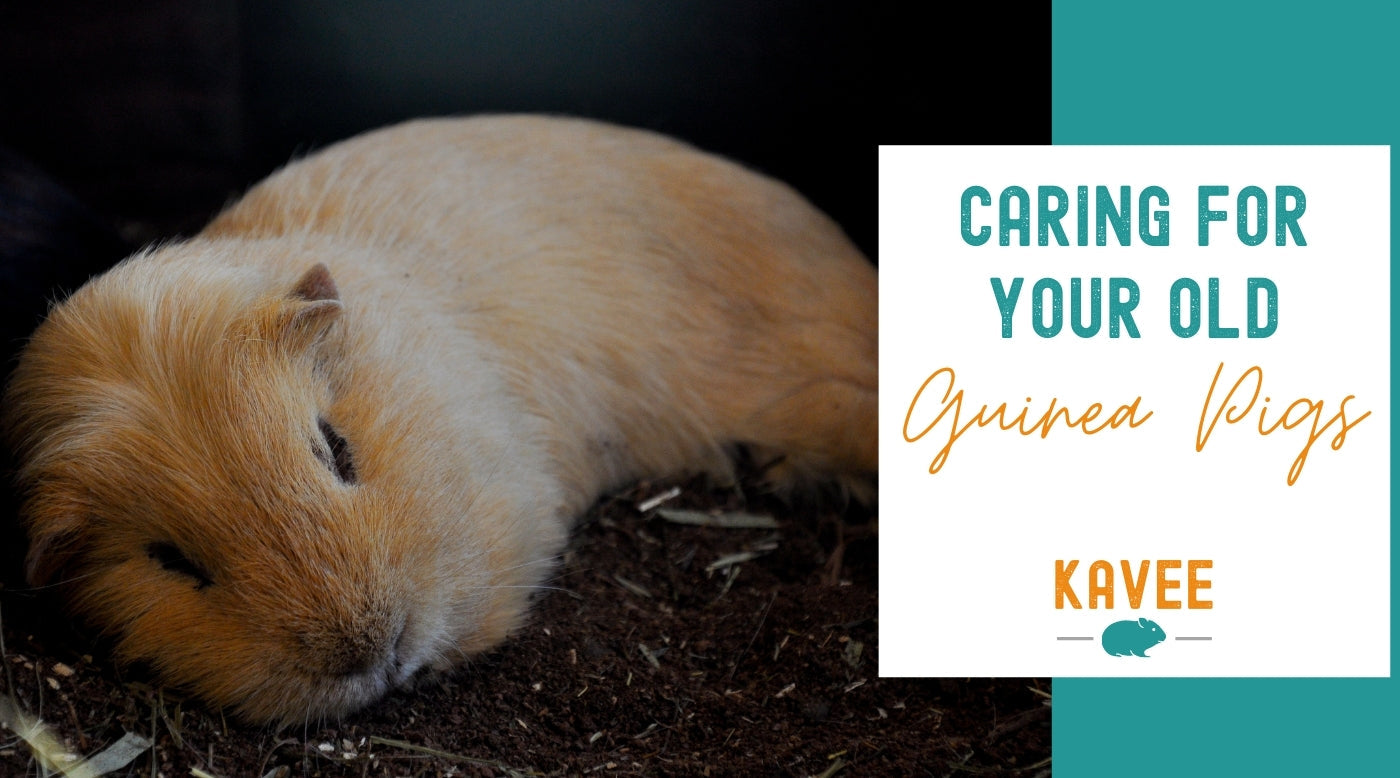Ageing is a natural process that affects humans and animals of all shapes and sizes. Unfortunately, guinea pigs are no exception to this. A guinea pig is often considered a senior when they are approximately 4 years old. But what happens once our furry friends reach an old age? Do their needs change? Is there anything you should look out for when caring for them?
Read on to learn everything there is to know about caring for old guinea pigs!
How long do guinea pigs live?
The average lifespan of a pet guinea pig is between 4-8 years, and a guinea pig is considered senior at about 4 years of age. Some guinea pigs have also been known to live up to an impressive 11 years! As your guinea pig ages, their needs evolve, and it's more important than ever to provide them with the appropriate care in the last chapter of their life.
With this in mind, we have collected some tips and ideas in the article below to best care for your oldies.
Top 5 tips for caring for old guinea pigs
- Monitor their health on a weekly basis with a handy scale to check on their weight (included in our complete Medical Kit!)
- Maintain your guinea pigs at the same temperature
- Supplement with nutritious food like oat flakes
- Increase frequency of cage cleans to keep a tidy environment at all times
- Do not change the cage layout if your old piggies have eyesight issues
Dynamics change
As your guinea pig grows older, you may notice that the relationship that they share with their companion(s) changes. As your guinea pig ages, their cage mates will recognise your piggies “rank” in the heard and respect their years of experience.
If your old guinea pig is the leader in their pair or herd, they'll often attempt to maintain their status until they are no longer willing or able to do so. If they're no longer fit to lead, it can bring a change to the herd’s hierarchy and you'll begin to see a new leader emerge as the original leader will tend to fall to the bottom of the ranks.
As they begin to scale back their authority, the ex-leader will often prioritise companionship, though it will vary from piggy to piggy (assertive or aggressive boars will often mellow out with age).

Extra caution with temperature changes
Your old guinea pig will be more susceptible to temperature changes, so take special care especially during seasonal changes. Make sure your older piggies are comfortable and avoid exposing them to colder or hotter temperatures.
It's even more imperative to keep your older piggies out of direct sunlight and cold drafts. As guinea pigs age, they tend to have more difficulty maintaining a stable body temperature due to weight loss. Ensure that they have access to warm sources when cold or shaded places they can take cover to cool down when needed. You can also get the help of cooling mats or freezable bottles to keep your old piggy comfortable when the temperature rises!
Regular weight checks
Old guinea pigs tend to lose more body weight with age, so it's important to check their weight on a weekly basis. Just make sure you have a small scale at hand (provided as part of our complete Medical Kit!) and make this part of their routine. With the weight loss, you'll start to see their hips become more prominent, which is quite normal with the aging process.
However, if you notice your old guinea pig rapidly lose weight (in the range of 50g to 100g) and in a short period of time, make sure to consult your cavy-savvy vet. Fast weight loss is often an indicator of a developing health issue.
Diet and food accessibility
As a part of the ageing process, your guinea pig’s metabolism will begin to slow down. So besides keeping a watchful eye on their weight, you should also watch out for any changes to their appetite. As always, if your piggy suddenly stops eating or eating less, bring them to vet to have this issue investigated further.
But if it's just a case of encouraging your piggy to eat more to make up for the weight loss, you could try introducing some exciting foraged herbs into their meals, or giving them new veggies they might end up loving. Nutritious foods like oat flakes can be offered as supplements, and so can safe fruits offered in moderation.
It's also important to note that food and water should be kept somewhere that is easily accessible for your senior guinea pigs, as mobility issues could sometimes limit access to certain areas of their cage.
Creating a comfortable environment
Keeping your ageing guinea pig’s environment comfortable is key to provide them with a good quality of life. Older guinea pigs tend to sleep more or stay in one place for a longer timeframe so keeping a clean cage is paramount. Try using pee pads in high traffic areas and increase spot cleaning for a dry, comfortable bedding.
This isn't just important for cage maintenance, but for their health too. Keeping your ageing piggies clean and dry prevents urine or faeces from causing skin issues or irritation. Especially since older guinea pigs tend to be more susceptible to bumblefoot if they're exposed to moist bedding and dirty cages. Find additional tips for a wheek-y clean cage here and if your piggy's bottom ever gets too dirty, consider giving them a bath to help prevent the health issues we mentioned above.
Older guinea pigs can also sometimes experience issues with their eyesight. Ensure that you have your piggy checked by a vet if you notice a significant change in their sight, or their eyes' appearance. For piggies with poor sight, keep the cage layout consistent to help build familiar surroundings and make your presence known to your piggies before reaching into their cage or touching to avoid startling them.
Conclusion
Ultimately, as our guinea pigs grow older, we need to continue to provide them with a safe, warm, and loving environment that is focused on good quality of life. It's even more crucial to ensure we are in tune with them in order to notice any changes to their health and to anticipate their care needs. All we can do is love them and enjoy each and every moment we have with them.
If you want to learn more about guinea pig care at all stages of life, check our this guide to raising guinea pigs month by month.







